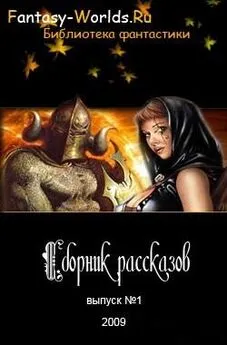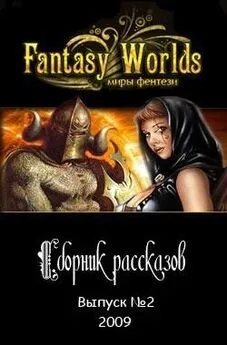Пользователь - WORLDS END
- Название:WORLDS END
- Автор:
- Жанр:
- Издательство:неизвестно
- Год:неизвестен
- ISBN:нет данных
- Рейтинг:
- Избранное:Добавить в избранное
-
Отзывы:
-
Ваша оценка:
Пользователь - WORLDS END краткое содержание
WORLDS END - читать онлайн бесплатно полную версию (весь текст целиком)
Интервал:
Закладка:
V
"Well, Alston, what do you think?" asked the colonel, when they were in their car again.
"If you want my opinion," said the professor, "I think the civil war should be stopped at any cost."
"Even if it means letting these people have a chance to establish their regime?"
"If their ideas are not sound, they will fail in the end."
"Perhaps. But won't that mean another war?"
"That's a long way in the future, Colonel."
The other turned to the young translator, whose eager competence he had observed. "What do you think, Budd?"
This gave Lanny a start, and he flushed. He had sense enough to know that the great man was being kind and that it would be the part of wisdom for a youth to be brief. "What struck me was that those fellows have all suffered a lot."
"No doubt about that," replied the gentleman from Texas. "We who live under an orderly democratic government find it hard to realize what men endured under the Tsar."
Colonel House didn't tell them what he himself thought. They learned the reason later on - that he disapproved of the proposed conference and didn't think it could succeed. But the President wanted it, and he was the boss; Colonel House never gave his opinion unless and until it was asked for. He said now that he would report what the Bolsheviks had said, and they would await the decision.
What happened was soon known to all the world. The President of the United States sat down before his well-worn typewriter-it being one of his peculiarities that when he had something important in his mind he liked to type it with his own fingers. He wrote as follows:
"The associated powers are now engaged in the solemn and responsible work of establishing the peace of Europe and of the world, and they are keenly alive to the fact that Europe and the world cannot be at peace if Russia is not. They recognize and accept it as their duty, therefore, to serve Russia in this great matter as generously, as unselfishly, as thoughtfully, as ungrudgingly as they would serve every other friend and ally. And they are ready to render this service in the way that is most acceptable to the Russian people."
The document went on to summon all groups having power in Russia or Siberia to send representatives to a conference. President Wilson took it to the Council of Ten next afternoon, where it became the subject of much debate. Some still demanded that an army be sent into Russia to overthrow the Bolsheviks; but when it came to a showdown, they wanted the soldiers of some other nation to go. Lloyd George asked the question all around: "Would your troops go? Would yours?" Not one statesman dared say yes, and so in the end the program offered by Wilson was adopted unanimously.
Where should the proposed conference be held? Various suggestions were made, one being the island of Prinkipo, in the sea of Marmora, near Constantinople. This afforded the overworked delegates a few moments of relaxation. Some refused to believe that a place with such a musical-comedy name could actually exist; but it was shown as a tiny dot on a map. When the council voted for it, the august Arthur Balfour, philosopher and scholar as well as statesman, was moved to a musical-comedy effusion:
Oh, let us go To Prinkipo,
Though why or where we do not know!
VI
This vote of the Supreme Council was one of the factors which decided Robbie Budd to go back to Connecticut; for the proposed war on Russia had offered about the last chance remaining for a salesman of munitions. Robbie had his sources of information, and had tapped them all and made certain that any money which America might lend to the smaller nations would be hedged about with restrictions, that it was not to be spent for arms. If England and France wanted any fighting done, it would obviously be with the stocks they already had on hand. In short, the cards were stacked against Budd's, and Robbie might as well go home with the bad news.
They would have to convert the plants to the uses of peace; but what uses? Every field was already crowded; if you decided to make automobile parts or sewing machines, you entered into competition with concerns which had been making these things for some time, and knew a thousand tricks that you had to learn. Everybody agreed that Europe would constitute an unlimited market, as soon as peace was declared; but the trouble was, Europe had so many factories of its own, and they would all be seeking the same markets. It was reported that the peace treaty was going to require the demilitarization of the German arms plants; which would mean that Krupp's also would be making automobile parts and sewing machines!
In short, the manufacture of munitions was a precarious business. When danger came, public officials rushed to you for help, and expected you to exhaust yourself working in their service; but the moment the danger was over they were done with you. You heard nothing but the clamor of demagogues that you had made too much money - when the fact was that you stood to lose everything by the sudden collapse of your business. Robbie said this with bitterness, and his son, who was now meeting other men and hearing other points of view, realized more clearly the curious antinomy in his father's mental make-up. Robbie hated war, and called the people fools for being drawn into it; yet when they stopped fighting, he was without occupation, and wandered about like a boy with whom other boys wouldn't play!
It wasn't his fault, of course; he hadn't chosen to be born a Budd. Said his son: "Why can't we convert our plants for good and all, and make things that would have a steady market and not go kaput all of a sudden?"
What was needed was new inventions, creating new demands. Some lay in the future, but they hadn't yet come over the horizon - and meanwhile there was only the junk business. Oddly enough, the most promising deal that Robbie had been able to make since the armistice was the one with Johannes Robin, who was setting out to prove himself a first-class businessman. What he was doing and planning was going to bring in a large sum; but because it consisted of a number of small items, Robbie would never be proud of it, and to the end it would remain in his mind the sort of business for a Jew.
VII
Just before sailing, Robbie called up his son and inquired: "Would you like to meet Zaharoff again? I've an appointment with him, and he always asks about you."
The old gray wolf was still on his way up in the world. Last year he had been made a Grand Officer of the Legion of Honor, and he was soon to receive the Grand Cross, usually reserved for kings. He had invited Robbie to call, and father and son drove to the palace on the Avenue Hoche, close to where President Wilson was being housed. The duquesa served tea again; only this time, since Lanny was a grown young gentleman and budding diplomat, she did not take him out into the garden but left him to attend the business conference.
Robbie had guessed that the Greek ex-fireman was still haunted by his dream of monopolizing the armaments industry of the world; and it turned out that this guess was correct. He said that now had come the time of the seven lean years, and those whose barns were small would be well advised to make friends with those whose barns were capacious. Zaharoff had taken the trouble to accumulate a lot of information about Budd's; he knew what dividends they had paid and what reserves they had kept; he seemed to know about the different plans which the president of the concern had been considering for the conversion of the plants, and the approximate cost of such procedure. Old Samuel Budd never came to Europe, either for business or pleasure, but Zaharoff had seen a picture of him; he even knew about the men's Bible class, and spoke of it with urbanity as an original and charming hobby.
The aging Greek with the velvet-soft voice explained that Budd's was in munitions alone, whereas the several hundred Vickers companies were in everything basic in modern industry: iron and steel, copper, nickel, and all the non-ferrous metals, coal and oil and electric power, shipping and finance. "When you have such an organization, Mr. Budd, you can turn quickly from war to peace, and back again at will; you have the money, the connections, the techniques. Whereas a small concern like Budd's, off in a corner by itself, is at the mercy of the financiers, who don't do anything for love."
"I know," said Robbie; and didn't ask whether Zaharoff was going to do it for love.
The American was more cautious than he had been five years ago. He knew that his people were in a dangerous position, and he knew that Zaharoff knew it. He listened while the old man with the white imperial suavely explained that such things as family and national pride were out of date nowadays; what counted was money. The really big kind was international, and was without prejudice; it did, not what it chose, but what it had to do. In times of stress, such as lay ahead of them, little business was swept into the discard and factories went on the bargain-counter like - "Well, like field-guns right now," said Zaharoff.
The munitions king seemed actually on the way to realizing his life's dream. Vickers now completely controlled Schneider-Creusot in France, Skoda in Bohemia, and the Austrian, the Turkish, the Italian plants. Its biggest rival, Krupp, was to be put out of the trade entirely. If Lanny had ever been uncertain as to why Zaharoff was standing so valiantly by the demand for war to a finish, he had the answer now.
"How unwise for you, Mr. Budd, with your isolated small business, to stand outside the great world movement! You might come in on terms that would be both honorable and profitable" - the speaker showed his delicacy of feeling by the order in which he placed these two words. "You have done us an important service in the war, and this is a way we can show our gratitude. It had better be done at once, before the stresses of business competition begin to weaken the ties of friendship. You will understand what I mean, I am sure."
"Yes," said Robbie, "I understand." And he did. He promised to go back and put the proposition before his father and brothers. "I'd rather not attempt to guess what their reaction will be," he added.
So the tactful Grand Officer of the Legion of Honor began to talk about the Peace Conference and what it was doing. He said that President Wilson was perhaps a great statesman and certainly a high-minded gentleman, but that some of his projects were hardly in accord with the interests of either Robert Budd or Basil Zaharoff. He turned to the boy who had now grown into a statesman, and asked how he was enjoying his excursion into diplomatic affairs. When Lanny revealed that his chief was a geographer, and was engaged in preparing a confidential report on Georgian affairs, the munitions king couldn't conceal his interest. Georgia was Batum, and Batum was oil; and already Zaharoff was on the scene, and fully intending to stay!
He began telling Lanny things, hoping that Lanny would be led to tell more important things without knowing that he was doing so. When they were ready to leave, the old man insisted upon summoning his duquesa to bid them farewell, and he said in her presence that Lanny must not let the work of peace-making deprive him entirely of social life; he should come and see them some time, and meet the duquesa's two very lovely daughters. There must have been some secret signal which Zaharoff gave the lady, for she instantly joined in and pressed the invitation. Neither of them mentioned that the two young ladies were destined to divide the fortune of the richest man in the world; but Lanny knew that it was so, and knew that all the world speculated as to whether they were Zaharoff's daughters, or whether their father was the Duque de Marqueni у Villafranca de los Caballeros, cousin of the Spanish king, shut up somewhere in a madhouse and stubbornly refusing to die.
Читать дальшеИнтервал:
Закладка:




![Галина Романова - Лицензия на happy end [litres]](/books/1058996/galina-romanova-licenziya-na-happy-end-litres.webp)
